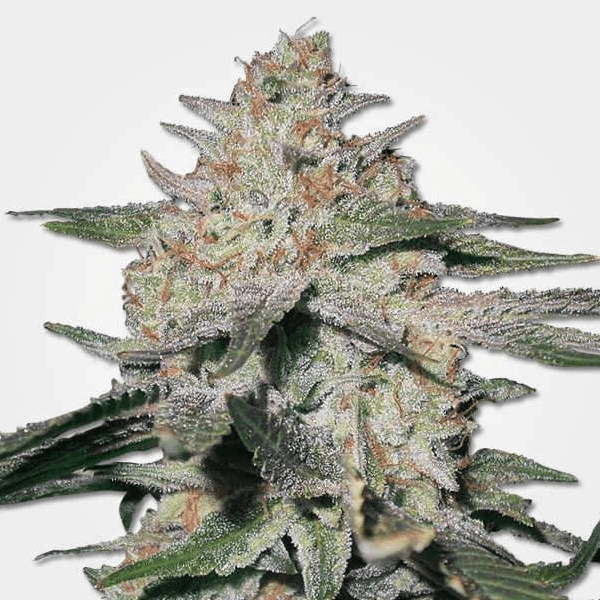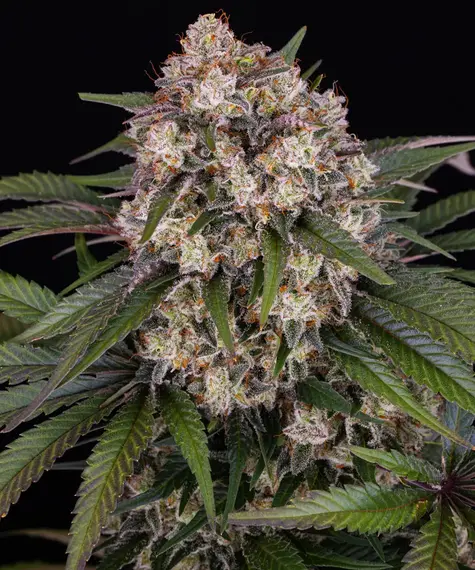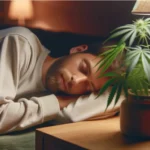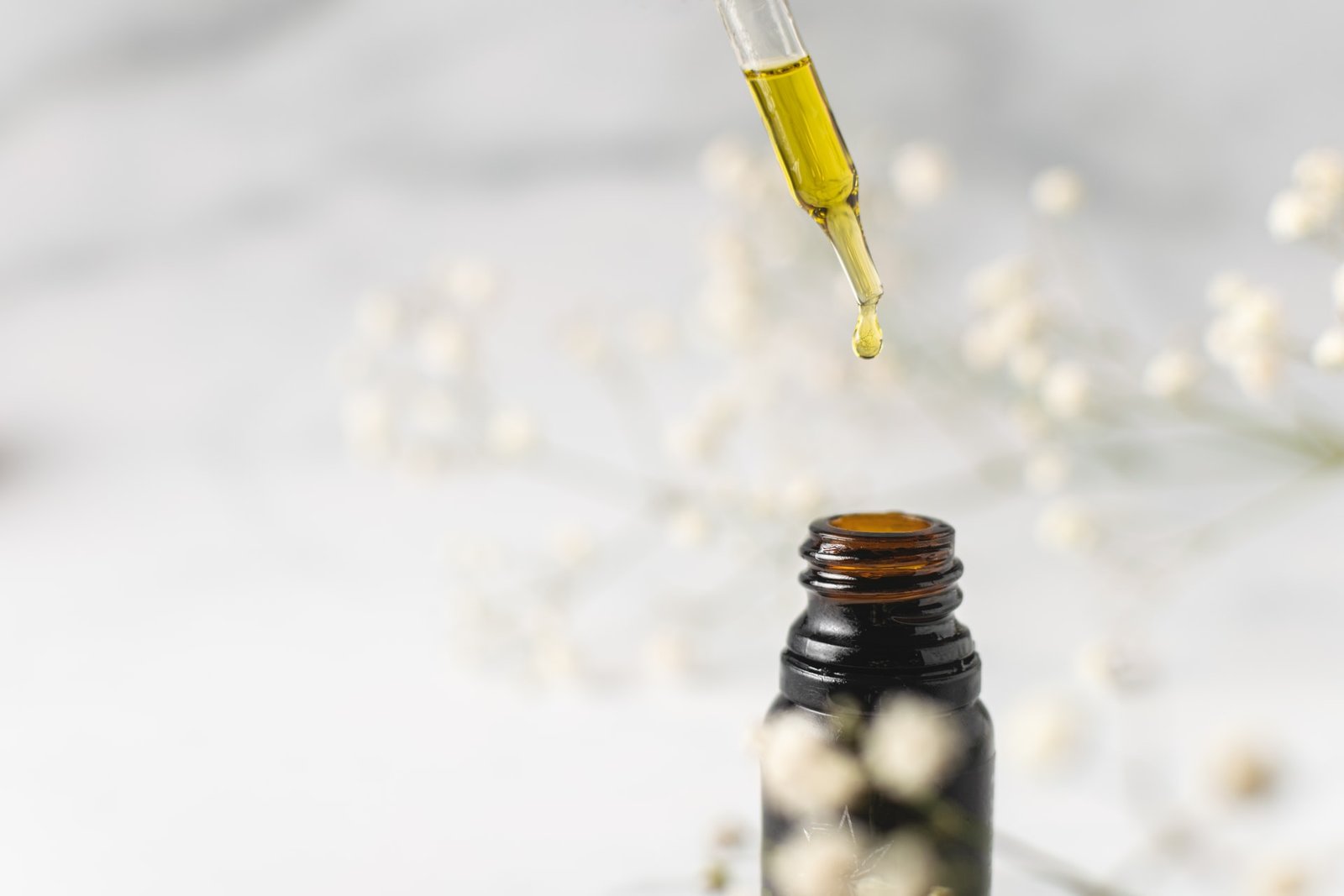
The Effects Of Cannabis On Sleep! Leave a comment
Many of us find ourselves tossing and turning at night, trying to catch some shut-eye. Whether it’s stress, anxiety, or just that relentless racing mind, sleep can sometimes feel like a luxury. While some folks turn to things like melatonin or sleep aids, others are seeking out more natural options, such as herbal remedies, deep breathing exercises, or even cannabis. Over the past few years, reports have been popping up everywhere, claiming that cannabis could be the key to better sleep.


As cannabis use becomes more widespread, especially in places where it’s legal, it’s easier than ever to give it a try. But before you reach for that cannabis-infused gummy, it’s important to understand how it might affect your sleep. Let’s break it down!
How Cannabis Affects Sleep
Cannabis can be a game-changer for some when it comes to sleep, particularly for those who have trouble falling asleep. Many users report that cannabis helps them unwind and relax, making it easier to drift off after a stressful day. Studies suggest that cannabis, especially varieties with higher levels of THC, may help you doze off quicker. THC interacts with your body’s endocannabinoid system, which helps regulate things like mood, stress, and sleep. It can bring on feelings of calm, which is perfect if your mind refuses to slow down.
That being said, while cannabis might help you fall asleep faster, it can also influence the quality of your sleep. Some people experience better sleep in the short term, but using cannabis regularly could impact your sleep cycle, leading to more interrupted or restless nights. It’s important to note that the effects can vary from person to person—some people might even feel more awake or anxious depending on the type of cannabis and how much they use.
What Are the Effects of Cannabis on Sleep?
Cannabis can have a range of effects on your sleep—both good and bad—so it’s important to consider how your body responds. Here’s a closer look at how cannabis could impact your sleep:
Drifting Off Faster
If falling asleep quickly is a struggle for you, cannabis might be just what you need. Especially strains with higher THC levels can give you a sense of calm, easing your racing thoughts and helping you fall asleep faster. This is especially helpful for people battling insomnia or anxiety that keeps them up at night.More Restful, Deep Sleep
Some studies suggest that cannabis can help boost the amount of deep sleep you get. Deep sleep, or slow-wave sleep, is when your body does its most important healing and repair work. It’s also when your brain processes and stores memories. So if you’re someone who feels groggy or unrested in the mornings, a good night of deep sleep might help you feel more refreshed the next day.Fewer Dreams, Less REM Sleep
Regular cannabis users often notice a decrease in the amount of time they spend in REM sleep, the phase where vivid dreams typically occur. For some, this might be a bonus—especially if you’re someone who suffers from nightmares or PTSD-related night terrors. Less time in REM means fewer dreams, which may lead to more peaceful, uninterrupted sleep.Morning Grogginess (aka the ‘Weed Hangover’)
It’s not all sunshine and rainbows. Some people wake up feeling groggy or foggy after using cannabis to sleep. This can be especially true if you’ve used a strain with a high THC content or if you’ve taken too much. This “weed hangover” can leave you feeling sluggish or out of sorts the next morning, a sign that the dose might have been a little too much for your system.
Below are the two major types of Cannabis, showing how Indica is the best choice when used as a sleep aid.

Below are specific Cannabis strains with higher Indica levels – best used as a sleep aid.
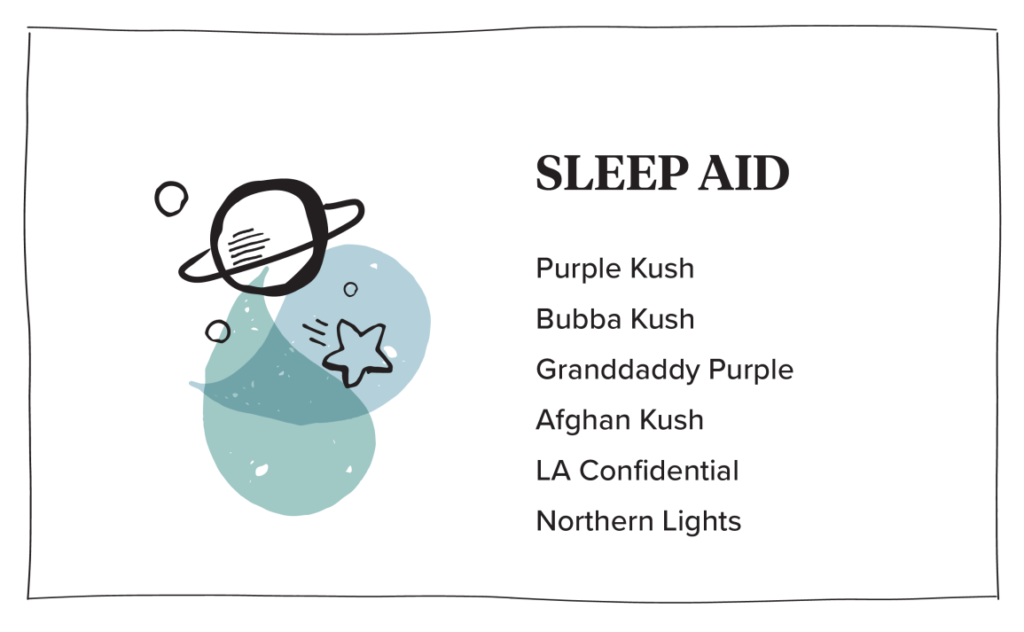
Cannabis: Not a One-Size-Fits-All Solution
While cannabis could potentially help improve sleep for many people, it’s not a guaranteed fix for everyone. The type of cannabis you choose, the dosage, and how often you use it can all affect the results. It’s also worth remembering that long-term use could disrupt your sleep cycle, leading to unwanted side effects.
So, if you’re thinking about using cannabis to catch some Z’s, weigh the pros and cons carefully. Consider your own sleep patterns and how your body typically reacts to cannabis. It’s always a good idea to start slow and pay attention to how it affects your sleep.
In the end, cannabis might be a great sleep aid for some, but for others, it could be a hit-or-miss solution. Whether you’re hoping for a quick nap or a full night’s rest, it’s all about finding what works best for your unique body and needs.
Indica Cannabis Seeds For Sleep Available In Australia
How to Safely Use Cannabis for Better Sleep: 6 Tips to Get You Started
Thinking about using cannabis to help you sleep? It can work wonders for some, but it’s essential to use it carefully to maximize the benefits and minimize any risks. You want to avoid problems like dependency or messed-up sleep patterns in the long run. Always check with your doctor first to make sure cannabis is right for you!
Here’s a guide to help you get started:
1. Start Slow with a Low Dose
If you’re new to cannabis, ease in with a small dose to see how your body responds. This helps prevent feeling too sleepy or overwhelmed too quickly. You can always bump it up a little if needed.
For most people, somewhere between 2.5 to 5 milligrams of THC is a good starting point. If you’re going the CBD route, you might need a higher dose, as CBD doesn’t have the same immediate drowsiness effect as THC. Keep in mind that everyone’s body is different, so it might take a little experimentation to figure out what works best for you.
2. Pick the Right Strain
Cannabis comes in many strains, each with different properties. Most strains fall into two categories: indica and sativa. Indicas tend to be more relaxing and sedative, which is great for winding down before bed. Look for indica strains, or hybrids with an indica-dominant mix, for the best sleep-enhancing effects.
Sativa strains, on the other hand, tend to be more energizing and can make you feel more awake or even anxious. These aren’t ideal for bedtime if you’re looking to relax.
3. Opt for CBD If You Want to Skip the “High”
If you’re not a fan of the psychoactive effects of THC, or if you want to avoid feeling “high” before hitting the hay, CBD could be your new best friend. CBD (cannabidiol) is non-psychoactive and won’t alter your mind, so it’s perfect for those looking to stay calm and relaxed without the side effects of THC.
CBD also doesn’t mess with REM sleep the way THC can, so it’s a better choice if you’re concerned about reducing your dreams or sleep quality. You’ll find CBD in oils, tinctures, gummies, and capsules, so you can experiment with what works best for you. Start with a low dose and adjust as needed.
4. Timing Is Key
Take cannabis about 30–60 minutes before bed to give it time to take effect. If you’re smoking or vaping, you’ll likely feel the effects faster—sometimes within minutes—so you can take it closer to bedtime. However, edibles take longer, typically anywhere from 30 minutes to 2 hours, depending on your metabolism.
Be patient! If you don’t feel anything right away, don’t rush to take more. Overdoing it could leave you feeling groggy or overwhelmed in the morning. Also, avoid using cannabis too late at night to prevent waking up feeling sluggish the next day.
5. Limit Use to Avoid Building Tolerance
Cannabis can be an excellent sleep aid, but using it every night can lead to building a tolerance. This means you might need more and more over time to get the same effects, which could disrupt your natural sleep cycle.
Try to reserve cannabis for nights when you really need it—maybe after a stressful day or when your anxiety is keeping you up. Take breaks from it now and then to keep your sleep patterns natural and avoid needing higher doses down the line.
6. Be Aware of Side Effects
Everyone reacts to cannabis differently, so it’s important to pay attention to how you feel. If you wake up groggy or sluggish, have a dry mouth, or feel dizzy, try adjusting your dosage, switching strains, or even opting for a CBD-based product instead.
If you experience any negative effects, tweak your approach until you find what works best for you. And if you’re concerned about side effects or have existing health conditions, always consult with your doctor before using cannabis for sleep.
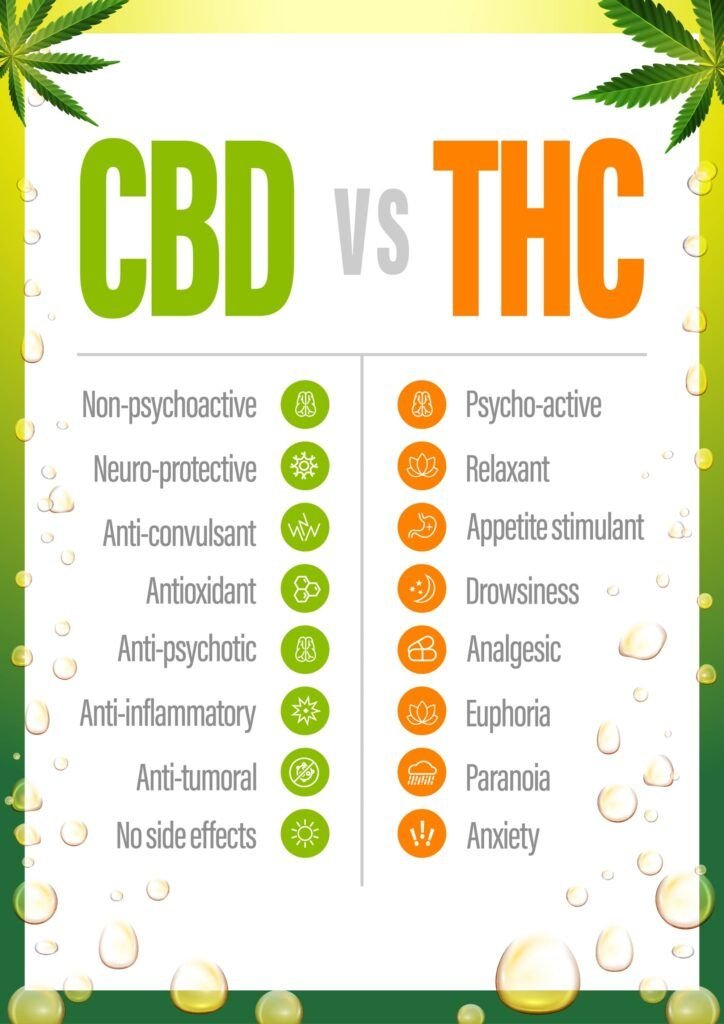
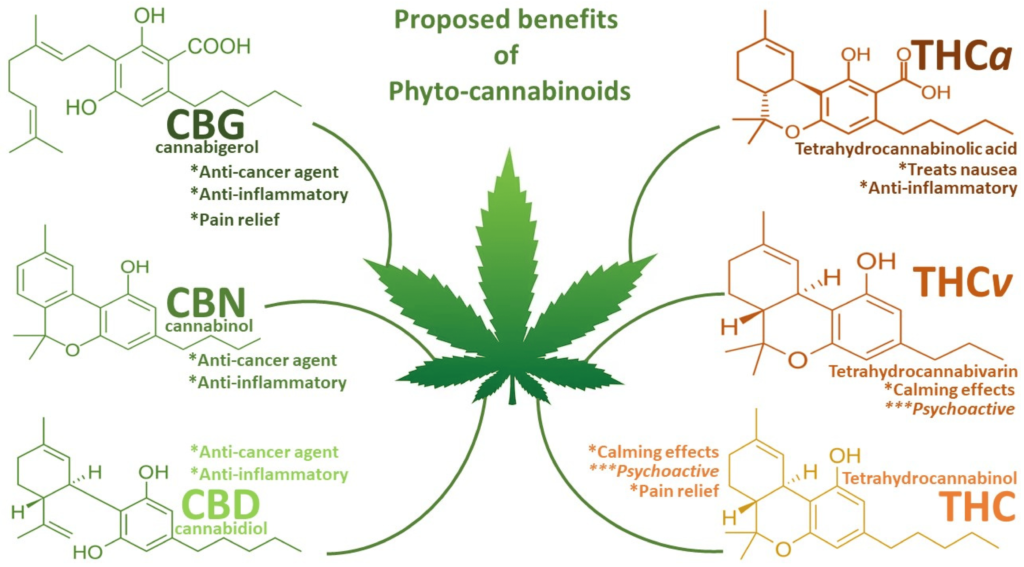
Cannabis for Sleep: Frequently Asked Questions
Is CBD or THC better for sleep?
It depends on your needs and how your body reacts. THC is known for its sedative effects and may help you fall asleep faster, especially if stress or anxiety is keeping you up. However, THC can also leave you feeling groggy the next day if taken in larger doses.
CBD, on the other hand, won’t make you feel “high” and can be an excellent choice for calming the mind without affecting REM sleep. It’s often preferred by people who want relaxation without the risk of grogginess in the morning.
Can cannabis use lead to sleep disorders?
Long-term cannabis use can sometimes lead to dependence, making it harder to fall asleep without it. You may also experience withdrawal symptoms when you stop using it, like trouble falling asleep, waking up during the night, or having vivid dreams.
Cannabis use can reduce REM sleep, which might affect cognitive functions like memory and learning over time. While this may be helpful for those dealing with nightmares, it could impact sleep quality in the long run.
How does cannabis affect dreams?
Cannabis reduces the time you spend in REM sleep, which is when most dreaming happens. For some, this means fewer or less vivid dreams. This can be a blessing if you suffer from nightmares or PTSD-related sleep disturbances.
However, stopping cannabis use can lead to a “REM rebound,” where your body catches up on lost REM sleep. This might result in more intense or vivid dreams, which can feel overwhelming at first.
What is the most effective cannabis for sleep?
Indica strains or indica-dominant hybrids are generally the most effective for sleep. They’re known for their calming and sedative effects. If you want to avoid feeling “high,” look for strains with a balanced ratio of THC and CBD or opt for a pure CBD product.
Talk to dispensary staff for advice if you’re unsure where to start—they can help guide you toward a strain that suits your specific sleep needs.
What are the alternatives to cannabis for improving sleep?
If cannabis isn’t your thing, or if it doesn’t work well for you, there are plenty of other natural ways to improve sleep:
- Melatonin supplements can help regulate your sleep-wake cycle, making it easier to fall asleep.
- Herbal teas like chamomile, valerian root, or lavender are known for their calming properties.
- Good sleep hygiene—like sticking to a consistent sleep schedule, avoiding caffeine before bed, and creating a calm sleep environment—can make a huge difference.
- Relaxation techniques like deep breathing, meditation, or progressive muscle relaxation can help calm your body and mind before bed.
- Cognitive Behavioral Therapy for Insomnia (CBT-I) has been shown to be effective for managing sleep issues, especially those related to anxiety or stress.
There’s no one-size-fits-all solution, but with a little trial and error, you’ll find the sleep routine that works best for you!

About the Author
Our deep love of plants and fascination with Cannabis has enabled over 25 years of successful small-scale Marijuana cultivation from indoor hydroponics, greenhouses, and outdoor growing set-ups.
As Cannabis laws around the world change, *we support the movement toward freedom of choice for responsible, consenting adults who wish to experience the joy and wonder of growing a Cannabis plant.

